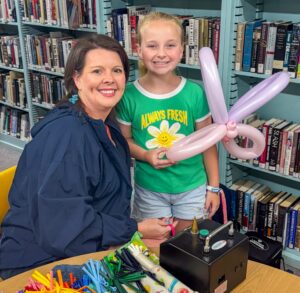New hemp laws have business owners miffed
FLORENCE — Melissa Hardin figures she’ll send out a notice on social media.
“I’ll probably make a post saying, ‘Just come and get it,’” she said. “We have bags of CBD flour that we are going to get rid of.”
That is the only solution Hardin had, as she closes her West Mall Drive business, Green Leaf and Company, before new state laws took affect Tuesday regarding THC, CBD and other hemp regulations.
“I’m very disappointed with everything that’s happened,” Hardin said. “The whole cannabis industry has been demonized to be something negative that it’s not. We were in process of opening a second location in Sheffield. We had the business license and everything. Now, we’re closing both stores.”
Gov. Kay Ivey in May signed House Bill 455, which regulate THC products in the state. It puts a THC cap of 10 milligrams per serving for edibles and beverages, bans any smokable hemp products, prohibits use for those under age 21 and limits THC product availability to specialty shops or dedicated areas of grocery stores of at least 14,000 square feet.
It also imposes a 10% tax on the sale of all THC products, establishes a licensing requirement for retailers and imposes severe civil and criminal penalties for retailer violations.
Retailers must obtain an Alcoholic Beverage Control Board license, which includes a $1,000 annual fee and background check.
Carmelo Parasiliti has operated Green Acres Organic Pharms in the Shoals Business Incubator for the past six years and now finds himself making major adjustments.
“We want to get all the new licenses to manufacture,” he said. “Those aren’t available yet, so we’re just making compliant products with that the law has given us so far. I’d say 99% of our products are having to be reformulated. We’re just going to try to roll with it and see if the sales will still contain us. We’ll have 10 mg gummies. We had 20 mg before. We are going to be a complaint company and want to provide Alabamians what we can.
“On the flip side of that, we purchased properties across the state line in Mississippi to have an online service so we can ship to around 38 or 40 states we’re allowed to ship to.”
Parasiliti said many customers in Alabama who are unable to drive due to disabilities use his products to ease the issues caused by the disabilities. He no longer will be able to ship his products to them and, since they cannot drive, he does not know how they were get them.
Parasiliti said there are many questions out there, and he would be happy to use his experience in the industry to assist local or state officials.








